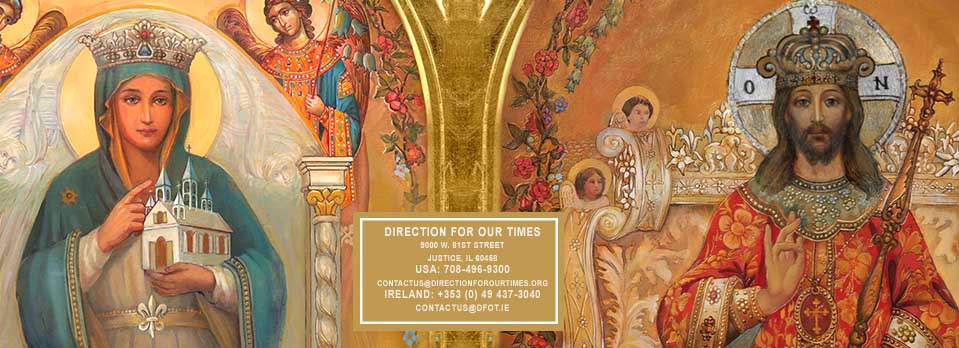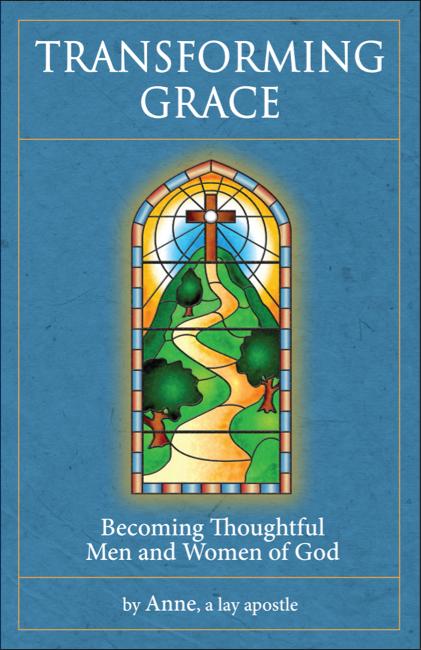So grateful for Anne's inspiring messages!

Anne Shares a Lenten Reflection

If we desire a share in the divine life during our time on earth, we must be willing to allow the Resurrected Christ to live in us and through us. This will be accomplished through our willingness to stare into Easter Sunday joy, yes, and also Good Friday suffering and death. We will suffer, dear friends, during our time on earth and will offer our bodies to the Father at the end of our time, just as Jesus offered His body to the Father at the end of His life. Jesus died after fulfilling the promise of His life by death on the cross. We can live, even during trials, the life of Christ. Let me explain. It is the same thing as saying the word ‘HOPE’. Hope is the road on which we travel through suffering safely. Hope protects us from idleness in the spiritual life in that there is no greater call to do our spiritual work cheerfully than when we are suffering. Being convicted about hope is the way we immunize ourselves from cynicism, which might be somewhere near the opposite of hope. When we sustain a series of sufferings, we can find that our hope is flat. We may kick it, metaphorically speaking, throw water on it, and even try to shock it electrically through our favorite Scripture or devotion and what occurs? Nothing. Hope does not leap. Hope sometimes lies still. This is a frightening state of affairs for those who are naturally buoyant. But humanity often only recognizes a suffering in another which he himself has suffered.
To examine hope that is accessible, let us look to Jesus on Easter Sunday morning. Imagine He is sitting outside of His tomb, which had enclosed His broken body, that is, the remnant of His expired humanity. Death had seemingly overcome Him. He was certainly not preaching with His mouth when He lay wrapped in burial cloths. No. There was no evidence of His divinity visible to human beings as the stone was rolled across the opening of the tomb. The crowds dispersed. For those who had been inspired to hope through the life of Christ, all hope would seem to have died. Imagine them walking away. Would it be accurate to say that their legs carried them away from the savagery of the Passion only through the action of the Spirit of hope remaining in them?
My friends, breathing itself illustrates some degree of hope. And it is for that reason, the absolute requirement of hope to keep a person inhaling oxygen and exhaling carbon dioxide, that Satan cannot extinguish hope in humanity. Only God, who breathed hope into humanity when He breathed life into him, can reach into our humanity through our souls and draw back life into Himself. When we take a life, through violence or euthanasia, we are trying to be God. We, through the very gift of our free will, given to us by the Creator, attempt to force God to submit to our will. How embarrassing is a belief that we hold anything near to the wisdom of the Creator! Abortion, euthanasia, and indeed any murder, makes us pitifully arrogant. We are pretending that we hold the wisdom to extinguish hope because when we extinguish life, we have decided that no hope should exist in the life
God created. If life is cooperating with the oxygen God provided, there is hope. Period.
But hope is a funny thing. It is just like oxygen in that it is invisible. It is like the wind in that it can often only be recognized by its effects. A mother feeds a sick child. She has hope the child will be restored or she would stop feeding the child. A terminally ill patient is given water.
Why? We have hope that the person will be sustained and comforted, but for what purpose? So that he can continue to inhale and exhale oxygen, thus, preserving hope for all of humanity until that person has completed his or her time in humanity. When, through God’s decision, that person surrenders his body to the Creator and advances into timelessness, hope is not extinguished, it simply transfers into those who remain with even greater abundance. Who would deny that they feel the spirit and presence of their ancestors who have gone before them, if only for an instant? Hope is something like oxygen. We must be careful never to pollute it, deny it or damage it in another. And the Resurrected Christ lives in each one of us who welcome Him. We must never be more certain of this than when we are suffering desolation.
The Resurrected Christ
An excerpt from Transforming Grace

Have you been blessed through the Volumes? Please help others receive these words by donating a dollar a day. Your donation makes a big difference.
Direction for Our Times (DFOT) is a 501(C)(3) non-profit organization dedicated to spreading God's messages as revealed in the Volumes.

Anne Shares a Lenten Reflection

If we desire a share in the divine life during our time on earth, we must be willing to allow the Resurrected Christ to live in us and through us. This will be accomplished through our willingness to stare into Easter Sunday joy, yes, and also Good Friday suffering and death. We will suffer, dear friends, during our time on earth and will offer our bodies to the Father at the end of our time, just as Jesus offered His body to the Father at the end of His life. Jesus died after fulfilling the promise of His life by death on the cross. We can live, even during trials, the life of Christ. Let me explain. It is the same thing as saying the word ‘HOPE’. Hope is the road on which we travel through suffering safely. Hope protects us from idleness in the spiritual life in that there is no greater call to do our spiritual work cheerfully than when we are suffering. Being convicted about hope is the way we immunize ourselves from cynicism, which might be somewhere near the opposite of hope. When we sustain a series of sufferings, we can find that our hope is flat. We may kick it, metaphorically speaking, throw water on it, and even try to shock it electrically through our favorite Scripture or devotion and what occurs? Nothing. Hope does not leap. Hope sometimes lies still. This is a frightening state of affairs for those who are naturally buoyant. But humanity often only recognizes a suffering in another which he himself has suffered.
To examine hope that is accessible, let us look to Jesus on Easter Sunday morning. Imagine He is sitting outside of His tomb, which had enclosed His broken body, that is, the remnant of His expired humanity. Death had seemingly overcome Him. He was certainly not preaching with His mouth when He lay wrapped in burial cloths. No. There was no evidence of His divinity visible to human beings as the stone was rolled across the opening of the tomb. The crowds dispersed. For those who had been inspired to hope through the life of Christ, all hope would seem to have died. Imagine them walking away. Would it be accurate to say that their legs carried them away from the savagery of the Passion only through the action of the Spirit of hope remaining in them?
My friends, breathing itself illustrates some degree of hope. And it is for that reason, the absolute requirement of hope to keep a person inhaling oxygen and exhaling carbon dioxide, that Satan cannot extinguish hope in humanity. Only God, who breathed hope into humanity when He breathed life into him, can reach into our humanity through our souls and draw back life into Himself. When we take a life, through violence or euthanasia, we are trying to be God. We, through the very gift of our free will, given to us by the Creator, attempt to force God to submit to our will. How embarrassing is a belief that we hold anything near to the wisdom of the Creator! Abortion, euthanasia, and indeed any murder, makes us pitifully arrogant. We are pretending that we hold the wisdom to extinguish hope because when we extinguish life, we have decided that no hope should exist in the life
God created. If life is cooperating with the oxygen God provided, there is hope. Period.
But hope is a funny thing. It is just like oxygen in that it is invisible. It is like the wind in that it can often only be recognized by its effects. A mother feeds a sick child. She has hope the child will be restored or she would stop feeding the child. A terminally ill patient is given water.
Why? We have hope that the person will be sustained and comforted, but for what purpose? So that he can continue to inhale and exhale oxygen, thus, preserving hope for all of humanity until that person has completed his or her time in humanity. When, through God’s decision, that person surrenders his body to the Creator and advances into timelessness, hope is not extinguished, it simply transfers into those who remain with even greater abundance. Who would deny that they feel the spirit and presence of their ancestors who have gone before them, if only for an instant? Hope is something like oxygen. We must be careful never to pollute it, deny it or damage it in another. And the Resurrected Christ lives in each one of us who welcome Him. We must never be more certain of this than when we are suffering desolation.
The Resurrected Christ
An excerpt from Transforming Grace

Have you been blessed through the Volumes? Please help others receive these words by donating a dollar a day. Your donation makes a big difference.
Direction for Our Times (DFOT) is a 501(C)(3) non-profit organization dedicated to spreading God's messages as revealed in the Volumes.

No comments:
Post a Comment